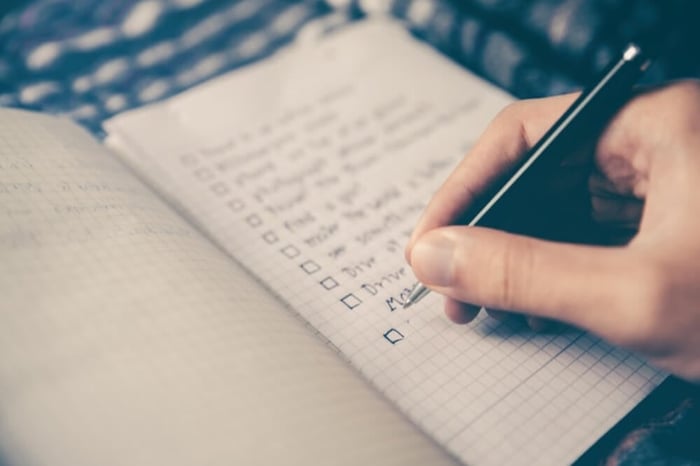
Avoid These Mistakes in Your Personal Statement
Let’s be frank, the chances are most of you haven’t previously written a piece convincing professionals that you are the best candidate they want. So how do you know what to do and more importantly what NOT to do? That’s a tricky question! There is no absolute right or wrong, nor are there utter rules, however there are a few questions you can ask yourself to determine whether you have fallen into a common pitfall and consequently avoid it.
Does it include a description of my experiences & extracurricular activities
At first glance it makes sense: describing what you have done demonstrates your observations and abilities. Well actually, by describing you merely show the reader what you did but not what you gained from it, which is the most important part. For all the budding novelist out there, I’m sorry but your personal statement might not be the best place to demonstrate this talent! The description should be brief and set the context of what you will be building up on. What follows is how as a result of that experience your understanding of Medicine has increased, or why doing that activity you described has equipped you with skills that will help you in Medicine. It is important to reflect on the situation and demonstrate that you appreciate the importance of good communication or teamwork, and what effect that had on the patient.
Let’s now practice: Read the two passages below, which candidate would you pick as the best one?
- Candidate A: “While doing work experience at a Cardiology department, I followed the doctors attentively and attended multidisciplinary meetings. I further got the chance to sit in clinics and found the consultations very interesting as I was able to see how the doctor worked through the patient’s problem systematically.” (305 characters)
- Candidate B: “During work experience at a Cardiology department, I attended a multidisciplinary meeting. I appreciated the teamwork required in patient care, as I observed the healthcare professionals provide their individual input to come up with a common plan which was in the patient’s best interest.” (288 characters)
So what’s your final answer? You’re right! Candidate B is definitely better at describing, reflecting and emphasising what he’d learnt from his past experiences in using fewer characters! Further, if you’re struggling to reduce your character count, pick out how much is due to the description of events and see if there is an alternative way of phrasing to make it more concise. You might just find you have gained some characters back!
Am I just listing my experiences
I have no doubt you are all high achievers and ambitious individuals, with many extracurricular activities and voluntary work experiences. That’s fantastic because it gives you plenty to talk about in your medical school personal statement and interview. However, what happens when you only have 4000 characters to fit it all in? It’s something I like to call the personal statement grocery list, where one experience leads onto another, and another and so on…While the candidates demonstrate how much they have done, they, unfortunately, do not get very far in the selection process. It doesn’t matter whether you have two or twenty extracurricular activities if you are unable to expand on them and show what skills you have gained from it! You need to explain how having those skills will help you in Medicine or even as a doctor. This may mean that you have to leave some experiences out, which can be disheartening but pick and choose your best ones to represent yourself!
Let’s go back to our Candidates A and B, who do you pick this time?
- Candidate A: “I partake in various extracurricular activities including tennis, badminton, and swimming. I also did Duke of Edinburgh and built on my team working skills. Having played the piano for over 5 years I now have a grade 5.”
- Candidate B “Playing doubles badminton regularly and in inter-school competitions has allowed me to become a better team player. On one occasion during match point, my partner and I came up with a strategy for the coming round ensuring both of us felt comfortable with the plan. This won us the match! I was further able to build on my team working skills during Duke of Edinburgh…”
By expanding on what you got out of doing those activities you individualise yourself from the next person who plays tennis and badminton – this is what will make you stand out! As previously mentioned pick and choose your experiences/ activities and expand on them to highlight what skill you gained and why will that make you the best candidate.
Do I link it back to medicine
You have followed points 1 and 2, you are no longer just describing nor listing, instead, you’re identifying the skills and reflecting on what you observed. Brilliant, but there’s more! It is very common to end at reflection and move onto the next point, but you need to finish by demonstrating that the skill you observed is important in Medicine. For example, if you observed a consultation and the important skill is communication you need to succinctly say why communication is a vital part of Medicine. It may seem like you are stating the obvious, and often it is, but it will show that you have insight into a career in Medicine.
Read the passages below and see if you can spot the difference it makes.
- Candidate A: “I observed a consultation where the doctor effectively communicated the risks of the procedure to the patient, after which she asked the patient what their decision was. The patient felt well informed and was able to weigh up the pros and cons before coming to a decision.”
- Candidate B: “I observed a consultation where the doctor effectively communicated the risks of the procedure to the patient. I noticed how important clear communication was as it allowed the patient to weigh up the pros and cons before coming to a decision. In Medicine, it is important to maintain patient autonomy. Patients must, however, have all the information required to formulate their decision and therefore clear communication by the doctor allows the patient to make informed decisions.”
Candidate B managed here to nicely link back his observation to medicine by highlighting why good communication is essential. It should only add another sentence or two but it will clearly show the reader that you have greater insight into Medicine compared to the candidate who does not link back. If you have answered yes to any of the questions, don’t panic because you’re already a step ahead having to identify the pitfall now you can go back and make amendments to further enhance your medical school personal statement!
The MSAG offers brilliant personal statement services run by tutors who have gone through the medical school application process themselves. If you are finding it difficult to make the appropriate changes to your personal statement, the MSAG provides full personal statement reviews as well as one-to-one tutoring sessions which take you through your personal statement, identifying areas of improvement and suggesting ways to effectively bring across your points! You can also speak with an MSAG Guide today and see what you need to take your personal statement one step further!



